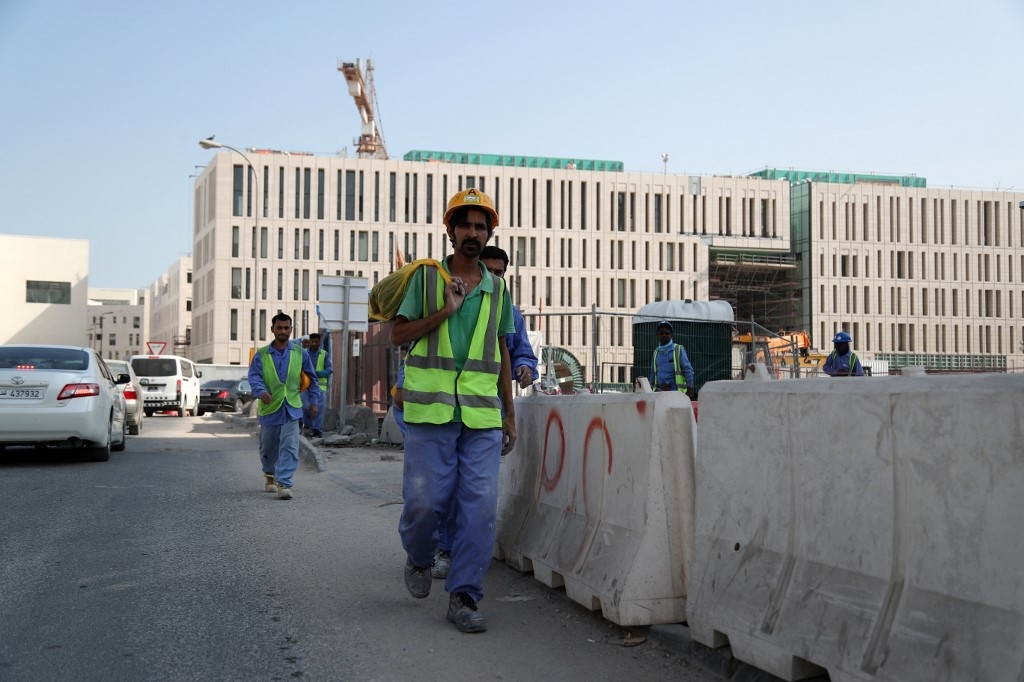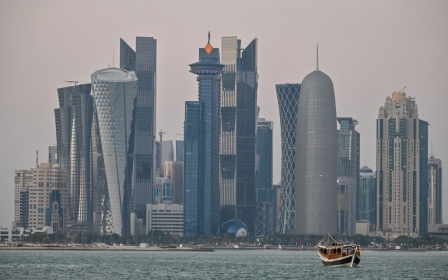Qatar accused of not investigating most migrant worker deaths ahead of World Cup

Qatar has been accused of failing to investigate the deaths of thousands of migrant workers in the last decade, despite widespread evidence of a link between premature deaths and unsafe working conditions.
Research carried out by Amnesty International showed that at least 70 percent of deaths had not been investigated and gone unexplained between 2010 and 2019, despite Qatar's healthcare system being equipped to look into the causes of death.
Most of the deaths, predominantly among South Asian construction workers between the ages of 30 and 40, were recorded as dying from natural causes - leading to some bereaved families missing out on potential compensation and unanswered questions.
'This is a violation of the right to life. They are also denying bereaved families their right to remedy, and leaving them with painful unanswered questions'
- Steve Cockburn, Amnesty International
The vast majority of the deaths recorded by Qatar have been categorised as "cardiovascular diseases" - leading Amnesty to believe Doha is "obscuring a high number of deaths that are unexplained".
“When relatively young and healthy men die suddenly after working long hours in extreme heat, it raises serious questions about the safety of working conditions in Qatar," said Steve Cockburn, Amnesty's head of economic and social justice.
Stay informed with MEE's newsletters
Sign up to get the latest alerts, insights and analysis, starting with Turkey Unpacked
"In failing to investigate the underlying causes of migrant workers’ deaths, the Qatari authorities are ignoring warning signs which could, if addressed, save lives.
"This is a violation of the right to life. They are also denying bereaved families their right to remedy, and leaving them with painful unanswered questions.”
The rights group analysed data from multiple sources which showed that official Qatari statistics indicated that over 15,021 non-Qataris died between 2010 and 2019 irrespective of age and occupation.
Working in extreme heat
Amnesty reviewed 18 death certificates for migrant workers issued by Qatar between 2017 and 2021 and looked into six deaths in detail from Bangladesh and Nepal.
Fifteen of the certificates analysed provided no information of underlying causes. They included terms like "acute heart failure natural causes", "health failure unspecified", and "acute respiratory failure due to natural causes".
'It was hard to believe when I heard the news of his sudden death… My husband was set on fire. I feel like I’m burning in oil'
- Bipana, wife of Tu Bahadur Gharti
Similar phrases were used in reports for more than half of the 35 deaths and recorded as “non-work related” on World Cup facilities since 2015 – suggesting meaningful investigations were unlikely to have been carried out in these cases.
None of the families Amnesty has spoken to were offered post-mortem examination to identify the cause of death and whether working conditions contributed to their untimely demise.
Most of the families interviewed by Amnesty mentioned no pre-existing conditions that could have caused their relatives' premature deaths.
Several relatives described the impact of extreme heat and difficult conditions their relatives had been exposed to at work with temperatures reaching 39°C or 40°C before their deaths.
Bhumisara, the wife of Bahadur Rana, said her husband "had to sit in the sun for a long time. I feel like he had a heart attack due to dryness and heat because I never knew he was sick."
Similarly, Bipana, the wife of Tul Bahadur Gharti, who worked in construction and died in his sleep in May 2020, said he died in his sleep after working for ten hours in temperatures that reached 39°C.
She said: “I had never heard him mention a single illness… it was hard to believe when I heard the news of his sudden death… My husband was set on fire. I feel like I’m burning in oil.”
Middle East Eye asked FIFA and Qatar for comments but had not received a response at the time of writing.
This article is available in French on Middle East Eye French edition.
Middle East Eye delivers independent and unrivalled coverage and analysis of the Middle East, North Africa and beyond. To learn more about republishing this content and the associated fees, please fill out this form. More about MEE can be found here.




